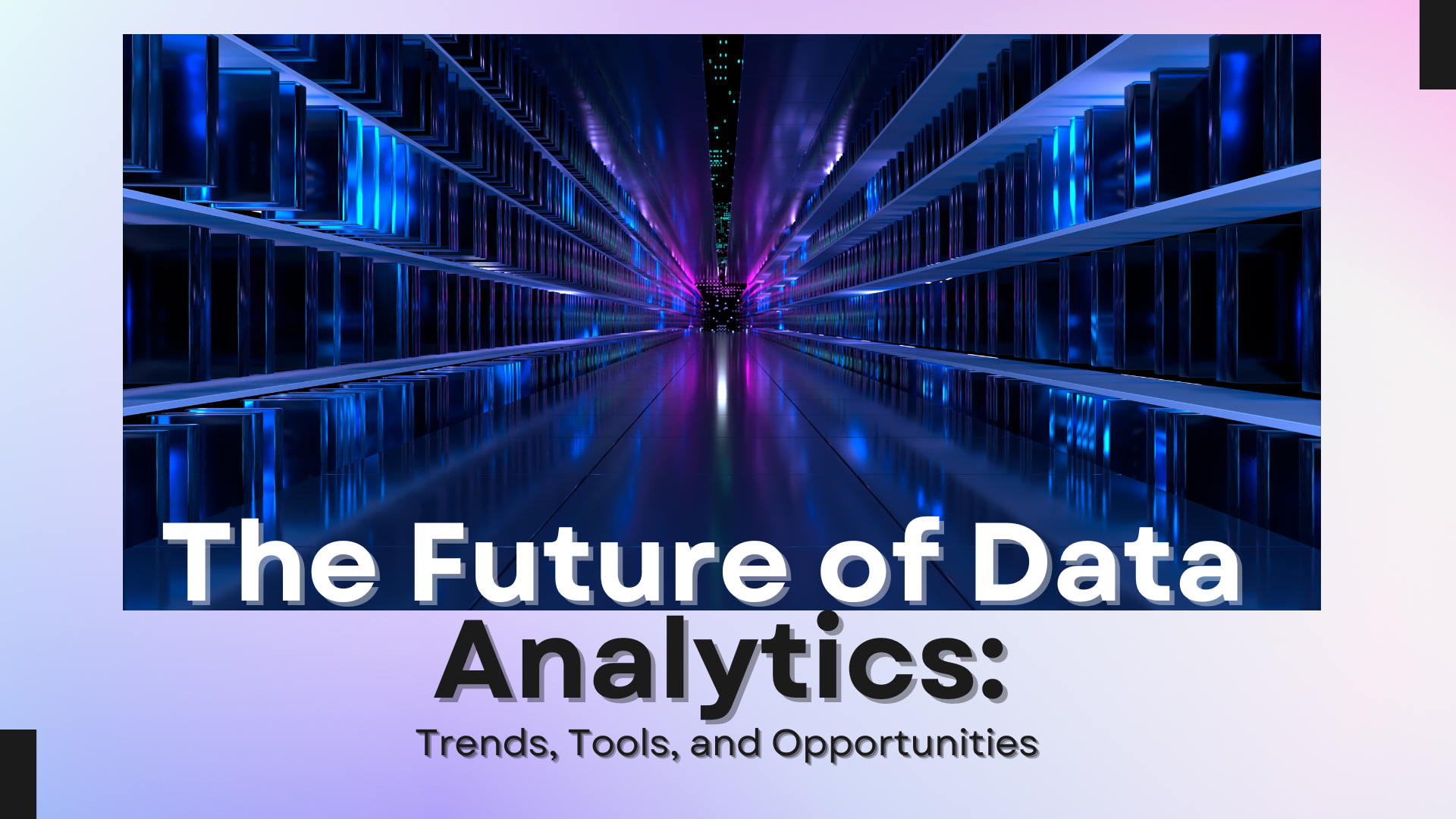Information, in many ways, is the new currency today. Data analytics serves as an engine for innovation driving everything from predicting customer behaviour to optimising supply chains. Business houses across the globe depend on analytics to turn raw data into insights guiding their decision-making. Technologies evolve as do the tools and methods that make data analytics such an indispensable component of any decision-making.
This blog shares emergent trends in data analytics, some of the must-use tools changing the world, and the incredible number of careers available for new professionals. Data analytics isn't about number crunching; it's about unlocking transformative potential across health care, finance, retail, and anything else imaginable.
Skill Highlights in Data Analytics
1. Artificial Intelligence Integration:
The introduction of AI in data analytics improves capabilities for better accuracy in predictions and further insights. AI-driven analytics tools will help utilize machine learning algorithms to identify anomalies and automate predictive modelling.
2. Advanced Visualization Tools
It has long since gone beyond just charts, for example, Tableau, Power BI, D3.js, or some of these tools, provide an interactive dashboard for very complex datasets.
3. Big Data Analytics
The explosion of data with big data tools like Hadoop and Apache Spark has made it possible for organizations to process massive datasets in real time. The importance of such technologies lies particularly in e-commerce and social media, as these streams are humongous and constant.
Evolution of data analytics purpose:
Data analytics is developing in light of the growing complexity and volume of data. Business seeks solutions for:
Predict Trend. Using past statistics, it predicts future events like market demand and the response of customers.
Improve Efficiency Operation: Identify areas of bottlenecks and improve process efficiency.
Tailor Experiences: Personalize customer experiences by considering data-driven insights.
This is the development of analytics that is creating the opportunity for people to obtain the latest tools, gain certificates, and position themselves on the list of assets for companies in digital migration.
Benefits of Data Analytics Mastery
1. Effective Autonomy
Such organizations would take less time for informed decision-making. For instance, through real-time analytics, companies adjust themselves to the changes in the market rapidly.
2. Diverse career options:
Data analytics is an entry point to business intelligence, machine learning, and data science. These are all highly sought-after fields and extremely well-paid.
3. Solving Real Problems
From reducing healthcare costs to streamlining public transportation, data analytics provides solutions to the most crucial global challenges.
Role of Data Analyst
Data analysts act as an interface between raw data and actionable insights. Their core tasks include:
Data collection is getting information from multiple sources like databases, APIs, and web scraping.
Data processing: Cleaning and collapsing data to make them presentable for one's analysis.
Interpretation of results: statistical and machine learning analysis to infer meaningful conclusions.
Analysts also have the role of sharing findings by some means of visualization or reporting to stakeholders to act based on insight.
Case In Point: How Aditya Changed His Career
An economics graduate, Aditya Kumar was at a loss regarding his career till he discovered the scope of data analytics through StuIntern’s data analytics training program. He pursued certifications in Tableau and Python and did a project on e-commerce sales trends analysis. This fetched him the job of Data Analyst at a multinational retail company. Today, Aditya is helping his team optimize their inventory management and predict customer preferences using advanced analytics tools.
That example will also explain how mastering data analytics can lead to exciting and impactful careers.
FAQs
Q. What are the Top Data Analytics Tools For 2024?
A. Popular tools include Python, R, Tableau, Power BI, Apache Spark, and Hadoop.
Q. Do I need programming skills for data analytics?
A. Knowledge of languages such as Python, SQL, and R is desirable but not required.
Q. Is data analytics suitable for non-technical professionals?
A. Yes! Tools like Tableau and Power BI have simplified data visualization, making analytics accessible for non-technical users.
Q. How can StuIntern help in career building with data analytics?
A. StuIntern offers resources, internships, and training programs to equip you with hands-on experience and get your first analytics job.
Q. What industries use the most data analytics?
A. There is a need for decisions in healthcare, finance, retail, and marketing industries by data analytics.
Q. What are valuable certifications for Data Analysts?
A. Good options to consider in this regard are Google Data Analytics, Tableau Desktop Specialist, or Microsoft Certified: Data Analyst Associate.
Q. Does data analytics add value to small businesses?
A. Absolutely! For small businesses, analytics used is for customer insights, inventory management, and marketing optimization.
Q. How long does it take to become proficient in data analytics?
A. Even beginners can become very proficient in constant learning within 6-12 months.
Q. What are some common issues in data analytics?
A. Challenges include handling unstructured data, ensuring data quality, and interpreting results accurately.
Q. Is it a stable career?
A. Yes, for instance, data professionals who are skilled and experienced will provide a long-term career.
Conclusion
Data analytics is a tool, and more than that, a driving force towards innovation and efficiency in the new modern world. Very exciting indeed for businesses and professionals as its promise continues in its development concerning AI, big data, and visualization. For those who want to enter this very rewarding industry, portals like StuIntern for online training and internship are your springboard. Using this resource would allow you to take on practice experience, learn the latest tools for the sector, and gain internships that ultimately lead you onto the correct path in data analytics. Though the journey is often arduous, its rewards await you, so embark on that journey today and walk your path to becoming an expert data analyst!

